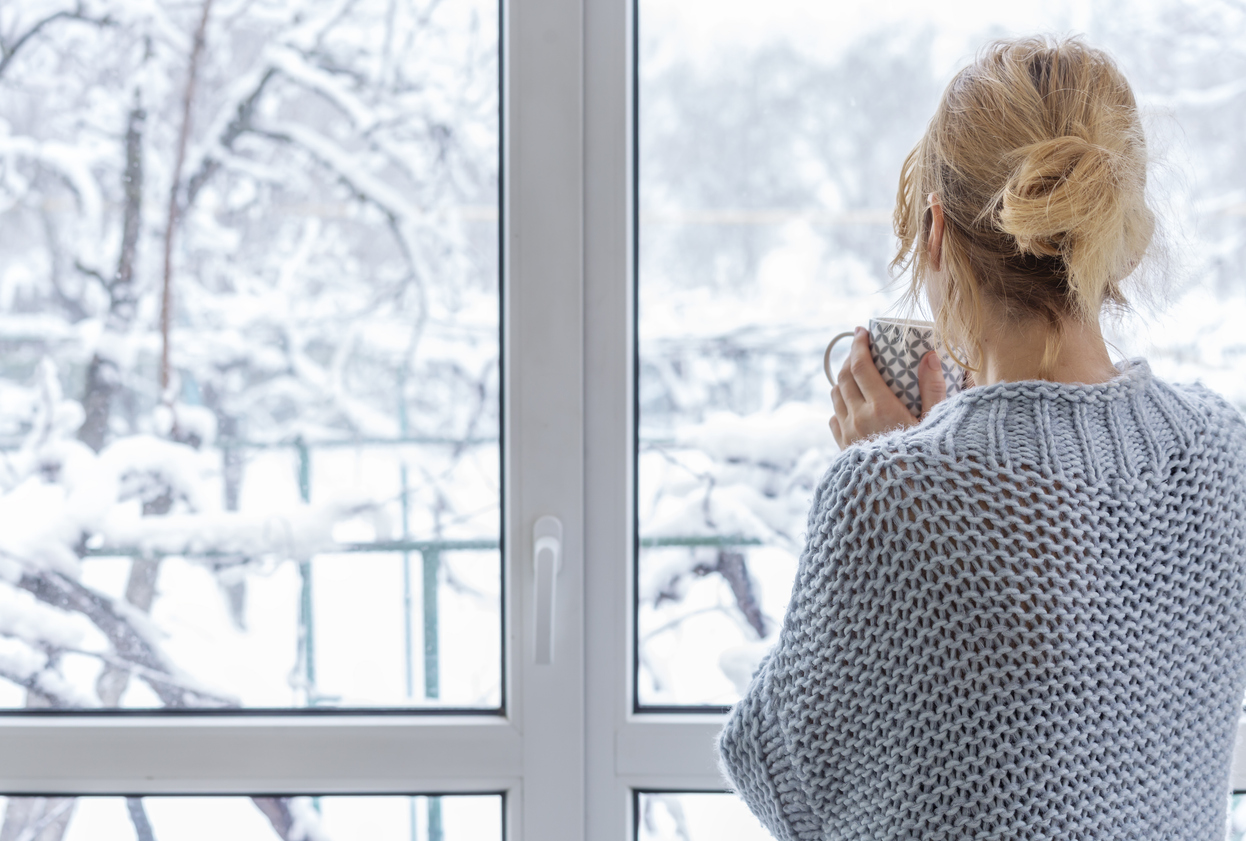How to save money on your winter energy bills
Updated December 31, 2024 | Published December 1, 2022 by Angela Talbot
-
Categories:
- Saving & Budgeting

Winter is typically the season in which Americans spend the most. It kicks off with the holiday shopping season and continues through spring with higher heat and energy bills. In 2024, inflation already has consumers planning to buy fewer gifts. We can also expect increases in electricity costs due to National Grid’s new rates which went into effect October 1, 2024. With this in mind, our team put together a list of tips to help you save on these costly energy bills.
1. Turn down your thermostat.
This is the most obvious answer to save money on heating your home. You could save around 5% on heating costs by decreasing your thermostat from 70+ degrees down to 68. You may have to wear a sweater in the house and get cozy under some blankets, but you’ll be proud of the results later. It can also be beneficial to use a smart thermostat with a timer and temperature control. When you leave the house for the day or when you’re sleeping at night, turn the temperature down even lower than normal, or have it turn off altogether, for extra savings.
2. Use your shades and curtains effectively.
Open your shades and curtains when the sun is coming through the windows and shut them tight at night. Sun beams showing through glass will heat up your house like a greenhouse effect. But, make sure you shut them as soon as the sun stops showing through in case of air leaks. Your curtains will provide an extra layer of insulation at your windows, which is where most of the heat escapes from homes.
3. Block air leaks.
First, keep your doors and windows closed at all times. Check your weather stripping. Any cracks or damage can render it useless. Make sure any spots around doors or windows that have the potential of leaking are sealed as well as possible. Doors that lead to a garage or basement can be a potential area of heat loss. Door draft stoppers are an easy, low-cost way to help keep heat in. You can also buy window seal kits at that will cover your whole window in plastic to keep out the cold air. If you have a house with a fireplace, make sure to shut the damper when you’re not using it.
4. Turn down your water heater.
Many water heaters go up to 140 degrees Fahrenheit. Water that hot would severely burn anyone who touches it, so it’s unnecessary to be that high. You can turn it down just 20 degrees to 120 degrees Fahrenheit and it would still provide sufficient heat. It would also save you about 8% on heating your water each year! Additionally, you can buy a water heater blanket to wrap around it. This holds the heat inside so that the heating element doesn’t have to turn on as often.
5. Use less electricity during peak hours.
According to electric companies, peak hours are essentially when everyone is awake and using the most electricity, while non-peak hours are overnight, weekends, and holidays when people are using less. Electric companies charge higher rates during peak hours than non-peak hours. Look up what your electricity provider’s peak hours are, as they vary from company to company. Try to run your major appliances that use the most power, such as dishwashers and washing machines, during the non-peak hours.
6. Check your refrigerator temperature.
Your refrigerator needs to be set between 35-40 degrees Fahrenheit to keep your food chilled, and your freezer needs to be set at 0 degrees Fahrenheit to keep food frozen. If your temperatures are set any lower than that you’re using unnecessary energy.
7. Check your attic insulation.
Heat rises, and if your attic is not properly insulated, you’re likely losing some of your heat as it rises up and out. Bad insulation can also cause too much cold air to get in.
8. Turn off heat in unused rooms.
If you have rooms in your house that aren’t used much, such as guest rooms or dens, turn off the heat or close the vents in those rooms. This will push more of the heat into the rooms where you really need it. Also, keep the doors to these rooms shut so that no heat circulates through them. To ensure you’re getting the maximum amount of heat in the rooms you do use, make sure that vents aren’t blocked by furniture and are cleaned out so that heat flows through smoothly.
9. Only wash and dry full loads of laundry.
Don’t waste energy on washing half of a load two times. Wait until you have a full load of laundry and only wash once. Save energy on drying by hanging up clothes to air dry.
10. Unplug.
Do you know that even when powered off, electronics that are plugged into the wall are still drawing electricity? You can reduce your electricity costs by unplugging all electronics that aren’t in use. Things like your microwave, toaster, computer, television, lamps – all can be unplugged while they aren’t being used.
11. Turn off your holiday lights.
Holiday lights are an added expense for many people during the winter season. If you aren’t willing to skip the festive lighting entirely, opt for a timer that will shut your lights off at a certain point in the night or turn them off yourself before bed. It’s customary for many people to keep the Christmas lights and decorations up until New Years, but turning your decorations off after Christmas will save you an extra week of the cost to power them.